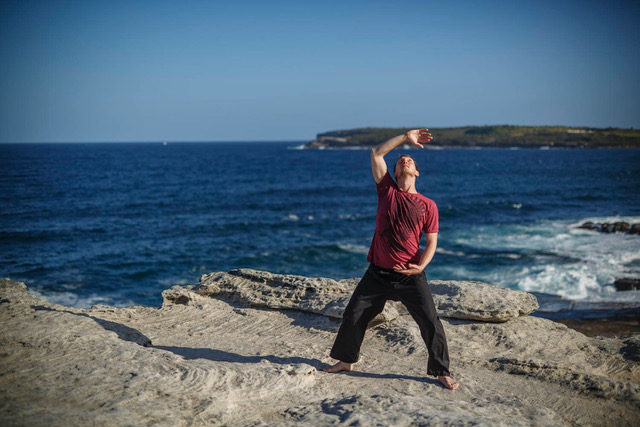
Your Guide to Clinical Exercise Classes by Physiotherapists versus Exercise Physiologists at RedoHealth
Have you heard about the mystical Chinese art of Qigong? If you have, I still believe that Qigong may remain something of a mystery to

That is to say, stress management is not something we are taught as kids, it isn’t a skill that comes naturally, nor something that is biologically hardwired and programmed into our brain when we enter this planet.
A fact of life is that we all experience stress from time to time and it isn’t something that needs to be taboo, not talked about and swept under the carpet.
Even if you are health conscious, spiritually awakened or a yoga ninja – it does not make you immune to the effects of stress or grant you a get out of stress free card.
But when it comes to how you deal with life’s stresses – you do have a choice.
Reaction.
Overwhelm.
Blame.
Denial.
Going into fight/flight mode, feeling its all just too much, taking it out on someone/something else, not taking emotional responsibility and not recognising and admitting that you are stressed.
There can be many hidden fears at play that come out and limit our expression, actions and decision making when it comes to dealing with our stress.
The fear of being seen as emotionally weak by others for expressing your stress, fear of being judged for not ‘having it all together’ and fear of being rejected for expressing your emotional vulnerability.
Furthermore, it is far too common in our culture to go into comparison mode and to start comparing your level of stress and your personal situation to someone else who is less fortunate than you – thus dumbing down your own reality, attempting to rationalise your stress, inflating your ego and invalidating your own emotional pain in the process.
Can you relate?
But it doesn’t have to always play out this way.
You can change the way that you meet and treat yourself when you are stressed.
Today I want to share with you my personal 3 A’s formula to less stress
It sounds simple but the simple act of catching yourself in those moments when you are feeling stressed, getting caught up in overthinking or feeling overwhelmed is a good first step.
Notice where you feel the stress in your body (is it showing up as a contraction across the chest, rush of blood to the head or a tension in your gut), notice the stories your mind is creating about the stress (I should have made more time, its all their fault, this is completely unfair, I should have known better) and lastly see if you can observe the emotions that are surfacing and turning within you.
Cultivating this awareness of your stress will take your focus away from perpetuating the stress itself and bring you back to the present moment.
The next step is a continuation of the first step – consciously recognising that you are stressed. Taking a moment to pause, to breathe, and to calm yourself.
This can be a good time to nurture yourself with some positive self-talk about the situation or prompting event (I understand that situation is occurring or has happened but I don’t need to let it affect my inner peace of mind, I can regain self-control and respond to this skilfully, I can take responsibility for how I deal with this and don’t need to react and give away my power).
In the final step this is when you take inspired action to shift your state – of mind, body and spirit. This is your invitation for your wellbeing self-practice – whether that is Reiki, Qigong or Meditation, this is your cue to practice.
If you have the time, this can be your primary practice of say 20-30 mins but It doesn’t have to be too lengthy as this may not be feasible, practical or available to you.
Having a micro practice of 5-15 minutes can be just as effective when you a feeling stressed and want to shift your state to feeling better again. If you do not currently have a wellbeing self-practice yet, get in touch and register now for my upcoming Qigong classes and workshops at RedoHealth.
#Stress #Qigong

Have you heard about the mystical Chinese art of Qigong? If you have, I still believe that Qigong may remain something of a mystery to

Have you heard about the mystical Chinese art of Qigong? If you have, I still believe that Qigong may remain something of a mystery to

Have you heard about the mystical Chinese art of Qigong? If you have, I still believe that Qigong may remain something of a mystery to